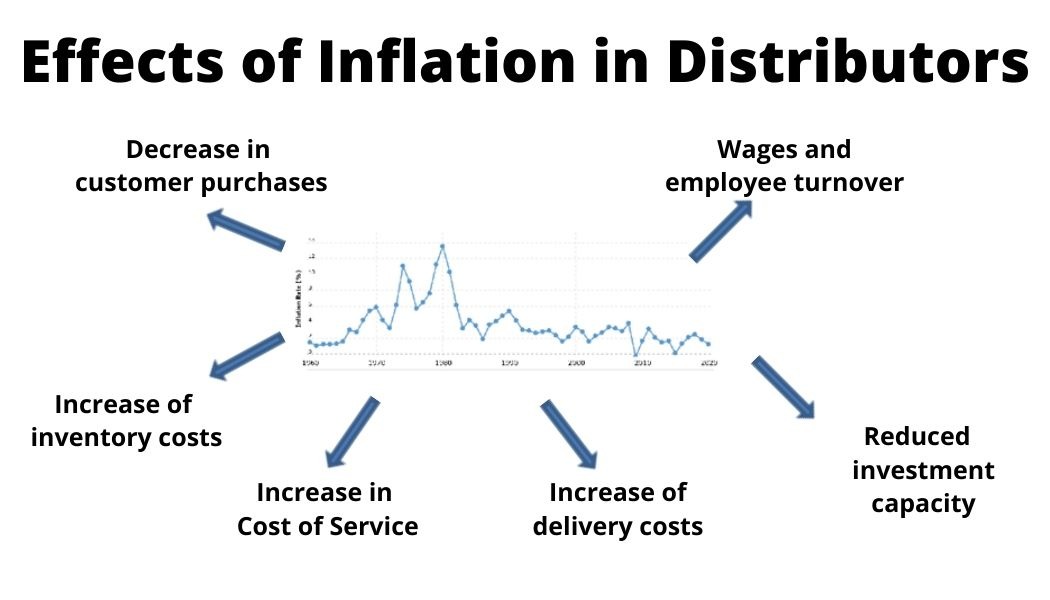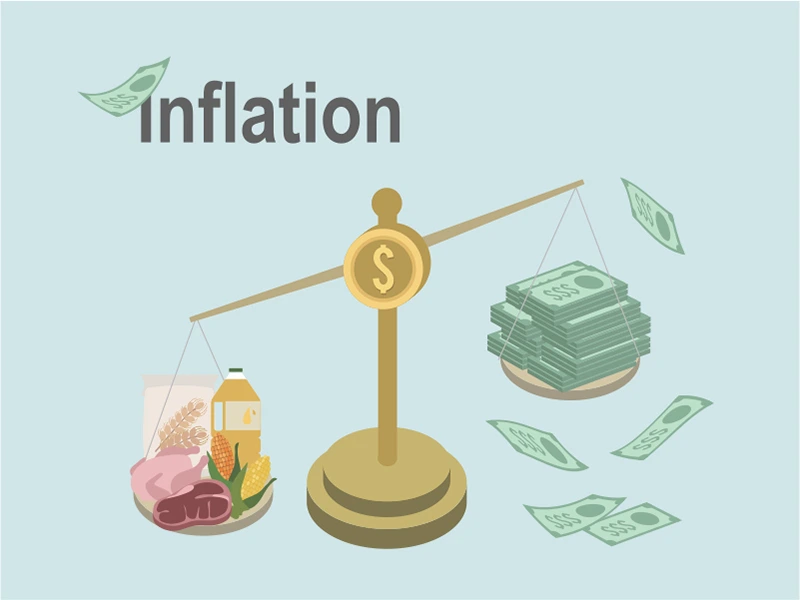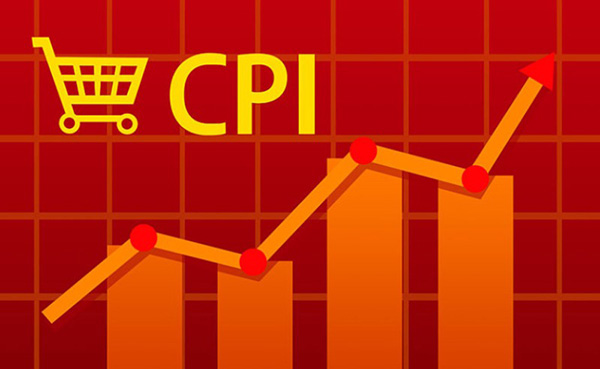Impact of Inflation: Is Your Stock Portfolio at Risk?
Picture this: prices are climbing and your buying power keeps dropping. That’s inflation hitting your wallet. But do you know how the impact of inflation on the stock market can hit your investments? It’s like a stealthy bandit, stealing real value from your stocks right under your nose. Years of careful stock picks could fall to pieces if you’re not watching. I’m here to help you understand this financial force and keep your portfolio safe. Let’s dive into the complex world where inflation meets Wall Street. With my guidance, you’ll learn how to spot the risks and make smart moves, so your stock gains stay strong, even when inflation is on the rise.
Understanding Inflation and Its Direct Impact on Equities
Analyzing the Consumer Price Index (CPI) and Market Dynamics
Let’s talk about how your money buys less when prices go up. This is inflation. It eats away what your cash can buy. When we look at what things cost—like food and clothes—we use something called the CPI. The CPI tells us how prices change over time.
When CPI goes up, it’s a sign that inflation is on the move. This can make stock markets act like a roller coaster. Investors watch the CPI closely. They try to guess what will happen with stocks when those numbers change.
Inflation can make companies pay more for the things they need. This means they might make less money. If they make less, their stocks can drop in value. Some stocks handle inflation better, though. These are often companies that can pass higher costs to customers.
So, what happens when CPI numbers go higher? Well, people who put money in stocks might sell. They do this because they’re worried that inflation will make their stocks worth less.
The Shift in Stock Valuations in Response to Rising Prices
Now let’s tackle why stock prices move when costs go up. Imagine you own a shop. If things cost more to make, you might raise your prices, right? If you go too high, though, folks may stop buying your stuff.
Stocks work similarly. When prices rise, a company’s costs go up. High costs can mean the company’s profits might fall. When profits fall, people might think the stock isn’t worth as much anymore. They might not want to pay as much for the stock.
But here’s the twist. Not all companies feel the hit the same way. Some can deal with high costs better. These companies might even do well when prices go up.
Think of it like this. Some raincoats keep you dry in a storm. In the world of stocks, there are raincoats, too. These are the stocks that can protect money from inflation’s heavy rains. Companies that make stuff everyone needs—like energy firms—often wear these raincoats.
And then there’s the big banks, the central banks. They control interest rates. When inflation gets too high, they raise rates to cool things down. But higher rates can also make it cost more to borrow money. This can hit company profits, and down go the stock prices.
Investors like you should look out for these shifts. When you see costs climbing, think about how this could change the stocks you own. Can they handle the hike in costs? If not, you might want to look for those raincoat stocks.
In the end, knowing about CPI and how costs affect stocks can help you. It can keep you from getting caught in the rain without a coat. Remember, when CPI numbers jump, it might be time to check your stock list. See if you own the kind that can stay dry in a cost storm. That way, you’re ready, rain or shine.
Central Bank Policies: Navigating Through Rate Hikes
How Interest Rate Hikes Directly Affect Stock Performance
When prices go up, life gets tough for everyone. You feel it in your pocket. It can be rough for stocks too. But why does this happen? Central banks, like the Federal Reserve, step in to cool things down. They hike interest rates. This can make borrowing cost more for companies. It can slow down their growth. And when a company doesn’t grow as fast, its stocks might not do so well. This all adds up. Higher costs, slower growth, and unhappy stock performance. It’s like a chain reaction.
Higher rates can also mean less spending. People and businesses cut back. This can hit company earnings. We see this in market trends. Stocks often drop after a rate hike. But not all stocks are hit the same. Some manage better than others. Knowing this can help your money stay safe in rocky times.
Adjusting Equity Risk Premium in Inflationary Times
Inflation means stuff costs more. It can eat into your money. It changes how we look at risk in investing. The equity risk premium is a fancy term. It’s the extra return you get from stocks over a safe bet like bonds. When inflation goes high, so does the equity risk premium. You want more return for your risk. It’s only fair.
But how do you adjust? It’s about balance. You don’t want too much risk. You also want to beat inflation. Some turn to stocks that offer dividends. These can be safer bets during high inflation. Others look for companies that can pass higher costs to customers. They can handle inflation better.
Figuring out the right equity risk premium is key. It keeps your investments on track. It helps you stay ahead of inflation. In times like these, being smart with your choices is what can save your portfolio from sinking. Always keep your eyes on inflation and interest rates. They tell a story. That story affects your stocks.
Remember, rising rates are like warning signals. They push you to tighten the sails. Adjusting your portfolio now can mean smoother sailing later. Keep informed and stay nimble. Your stock portfolio might just thank you for it.
Crafting Your Investment Strategies During High Inflation
Selecting Inflation-Resistant Assets like Dividend Stocks
When costs rise, so does trouble for our pocketbooks. But don’t sweat, there’s a plan! Investing in some stocks helps you fight back. Think about dividend stocks. They’re like your small, sturdy umbrella in a money storm. Companies that pay dividends often sell stuff people always need. They make money even when times are tough.
These firms can sometimes raise prices during inflation. This means they still make profits and pay you dividends. This cash can cushion the blow from inflation. It’s like getting a prize each time prices hike up. Isn’t that neat? Let’s say you had shares in a toothpaste company. Folks will keep buying toothpaste, even if the price goes up a little, right?
Now remember, not all dividend stocks are equal. You want to pick firms with a history of strong, steady dividends — the true inflation fighters. Look at how well they’ve done in past rough patches. A track record of stable payouts is a great sign. Make sure they’re not drowning in debt and that they really rake in the cash. Companies sturdy enough to brave the inflation storm are key for your investment ship.
Hedging Against Inflation: Bonds and Real Assets
Hey, did you know there’s more than one way to shield your cash from inflation? Bonds, like Treasury Inflation-Protected Securities (TIPS), adjust their pay-out with rising costs. That means your bond income keeps up with price jumps. It’s a bit like magic shoes that grow with your feet — always a perfect fit!
Real stuff like land, buildings, and metals can also be solid bets. Their value might climb when cash value drops. Imagine owning a building. If it costs more to make a new one, the one you have could be worth more, right? That’s how real assets often work in inflation times. They’re like the trusty old toys that get cooler as they age.
Investing during high inflation needs a mix of tricks. You get some stocks that can ups prices, like our toothpaste folks, and add in growth-adjusting bonds. Then sprinkle on some real assets that could grow in value. Each part of your plan helps fight back against those rising costs. It takes smarts, but you can do it. Keep those tricks up your sleeve, and watch your money stand strong.
Anticipating Market Trends: Inflation Indicators and Forecasting
Interpreting Inflation Trends for Proactive Market Forecasting
Markets move, often without warning. But one thing that guides them is inflation. Inflation means rising costs, from milk to cars. So, prices go up, but what about stocks? Will they go south or take off like a rocket?
One big clue is the Consumer Price Index (CPI). This number tracks how prices change. A high CPI tells us inflation is ticking up. That often makes the market jittery. It may mean costs for firms are up, which can eat into profits. Savvy investors watch CPI like hawks to guess where stocks might head next.
Another clue is what central banks decide about interest rates. They might bump up rates to cool hot inflation. When that happens, borrowing cash costs more. This can slow down spending and investment. So, higher rates can hurt stocks’ appeal. They can make loans pricey and hit firms’ bottom lines.
Inflation-Proof Investment Strategies and Adjusted Stock Performance
Not all stocks feel inflation’s bite in the same way. Some even thrive! They’re like a warm blanket in a cold room. Take dividend stocks, for instance. These stocks pay you back, year after year. They can offer some shield from inflation’s sting since you get cash whatever happens to prices.
Inflation isn’t all bad for stocks, though. Some say mild inflation can mean a strong market. It can hint that people are buying more, and firms are selling more. Plus, certain assets, like stocks, can still grow. They might even beat inflation over time. So, if you pick right, your investments could do well, even with inflation.
And don’t forget about real things, like land or gold. They can stand strong when money’s worth less. Real estate investment trusts (REITs), for one, often handle inflation well. They own stuff like offices or malls. These assets can keep their worth, even when dollars buy less.
Now, let’s chat about bonds for a sec. They’re loans you give, expecting regular money back, plus extra at the end. But inflation can mess with their value. When prices rise, the cash you get back buys less. So, as inflation climbs, the love for bonds often drops. This is one more piece of the puzzle in predicting market moves.
With inflation shifting sands under our feet, we need to stay on our toes. Let’s keep our eyes peeled on these tell-tale signs. We need to see through inflation’s fog. That way, our stock choices stay sharp, and your hard-earned cash works hard too. So, let’s use all the tools we’ve got to spot trends before they’re headlines. With a keen eye and some smart moves, we can aim to keep our investments inflation-proof and growing.
We’ve covered a lot about inflation and investments today. From how rising costs change stock values to what central banks do about this. We saw that interest rates going up can make stocks perform differently. Picking stocks that can handle inflation, like ones that pay dividends, can be smart. It’s also good to mix in bonds and real assets to protect your money.
By keeping an eye on inflation signs, you can guess market moves and adjust your plans. Always stay one step ahead. Remember, even with high inflation, the right strategy can keep your investments strong. So, keep learning and be ready to change your plans as needed. That’s how you’ll win at investing, no matter what prices do.
Q&A :
How does inflation affect the stock market?
Inflation’s impact on the stock market can vary, but typically, high inflation rates lead to uncertainty among investors. This can result in increased volatility and potential declines in stock prices, as inflation erodes the value of future cash flows from investments. Companies with pricing power that can pass on higher costs to consumers may perform better during inflationary periods.
Can inflation lead to a stock market crash?
While inflation itself does not directly cause a stock market crash, it can contribute to the conditions that make a crash more likely. Rapidly rising inflation can force central banks to increase interest rates to slow down the economy. If done too aggressively, this can lead to decreased consumer spending, lower corporate profits, and could trigger a significant stock market downturn or crash.
What are the best stocks to invest in during high inflation?
During periods of high inflation, investors often turn to stocks in sectors that can pass on rising costs to consumers without losing demand, such as consumer staples and energy. Additionally, companies with strong balance sheets and the ability to sustain dividends are usually preferred. Real assets, like real estate and commodities, may also perform well during inflationary times, as their values often increase with inflation.
How can investors protect their portfolios against inflation?
To protect their portfolios against inflation, investors may look towards stocks that traditionally hedge against inflation, like those in the commodities, real estate, and utility sectors. Diversification into inflation-protected securities, like Treasury Inflation-Protected Securities (TIPS), and considering assets like gold or other precious metals, can also offer a buffer against inflation’s erosive effects.
Is there a correlation between inflation and stock market performance?
Yes, there is often a correlation between inflation and stock market performance, but this relationship can be complex. Moderate inflation is sometimes associated with healthy economic growth, which can be good for the stock market. However, unexpected high inflation can lead to decreased purchasing power and escalated interest rates, which tend to negatively impact stock market performance. It’s important for investors to monitor inflation trends and adjust their strategies accordingly.



